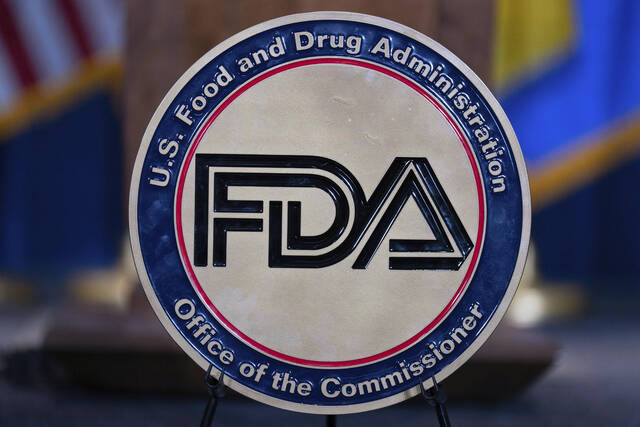https://triblive.com/news/health-now/pittsburgh-doctors-cheer-removal-of-black-box-warning-on-hormone-therapies-for-menopause/
Pittsburgh doctors cheer removal of black box warning on hormone therapies for menopause

Pittsburgh-area doctors are welcoming the removal of a black box warning — the strongest available to the federal Food and Drug Administration — from hormone therapies used to treat menopause symptoms.
The agency announced the change last week, directing drugmakers to remove prominent labels alerting women of increased risks of life-threatening diseases.
Hormone therapies can help reduce menopause symptoms like hot flashes, mood swings, difficulty sleeping, urinary tract infections and vaginal dryness. They replace estrogen and progesterone, hormones that decline during menopause.
The warning went into effect in 2003 after a clinical trial detected elevated risks of breast cancer, dementia, heart attack and stroke.
But the study was flawed, experts say, focusing on women older than the average age of prescription and using a formulation of progesterone that’s fallen out of favor.
“Really, what happened is they threw out the baby with the bathwater and said nobody should have hormone therapy,” said Dr. Katherine Scruggs, an obstetrician and gynecologist at Allegheny Health Network.
In fact, more recent research shows several long-term benefits of hormone therapies when taken within a decade of menopause onset, including significantly lower risks of heart disease, diabetes and osteoporosis.
The 40s and 50s, when menopause typically begins, is a critical time for women’s long-term health, according to Dr. Sarah Richina, director of the UPMC Magee-Womens Midlife Health Center.
“And generations of women have missed out on an opportunity,” she said.
It’s not that doctors never prescribed hormone therapies. But when they did, according to Richina, it was often a last resort, prescribed at the lowest dose and shortest duration possible.
Even then, the black box could prove powerful.
“What happened is women would get home, see their labels and wouldn’t use it,” Richina said.
The FDA hasn’t exactly signaled all clear.
A lower-level warning will remain about the risks of developing the most common type of uterine cancer from estrogen-only products.
Other possible risks will also be listed on each product, depending on how they’re administered. For instance, women may face an elevated risk of blood clots when taking estrogen orally, but not when using patches, sprays and gels.
But at least now, Scruggs said, women can feel like hormone therapy is a legitimate way to deal with menopause symptoms.
“I usually tell my patients there’s no reason to suffer, there’s usually something to help your symptoms if it’s affecting your quality of life,” she said.
Copyright ©2026— Trib Total Media, LLC (TribLIVE.com)
